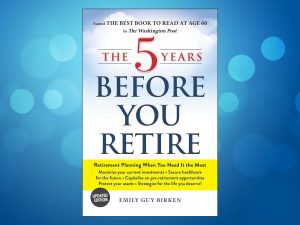Here are some tips to keep you more balanced and stress free
1) Ask don’t tell
Too often, we make up our minds about things and set the train on one track, whether it’s for ourselves or others. Yes, loss, sadness, or illness are highly uncomfortable and are certainly personal. Think before you blurt. There are always options and often more choices than we think. Try to include your elders in as much decision-making as possible, even if it’s down to just basic dressing and grooming choices. Stay focussed. It often helps to write a few notes for discussion or take an article with you that makes for a good starting point for a chat. Be open but tactful.
2) Work to plan
If you hire support workers to come into your home, keep a written schedule so you will know when help is arriving and what is expected during their shift. You will also need a system to keep track of medical information over time.
3) Beliefs and ethics
Where a strong religious and cultural framework may influence care or recovery and language. Try for a vacancy in a culturally centred home (i.e., Ukrainian, Jewish, Finnish, Chinese, etc.). It’s a delicate balance between maintaining an environment that is familiar and comfortable and those services that are locally available. If your parents are like many immigrants, they may easily resort to speaking only their mother tongue. Traditional foods and respect for customs may make elders feel secure as they hold on to the past. For as long as possible, encourage parents to continue communicating in English or French or whatever they’ve chosen as their “official” language. The ability to personally explain to a doctor or medical team member or stay linked to
the outside world is worth trying to maintain.
4) Guilt and obligation
A sense of duty is often synonymous with “parent care.” Some elders remind their kids that it’s “payback time.” Act from your heart—do what you believe is fair/manageable/reasonable. Take on only what you can handle and find innovative ways to pick up the slack. Ask for sibling support if possible, don’t be pushed into feeling obliged or exhausted by responsibility.
5) Ask insiders
Fast-track yourself to local resources and innovative ideas and support services. A significant number of people are employed in the healthcare field in your community, so seek out their advice and opinions on local programs, facilities, and suppliers on an informal basis. Connect with some of your parents’ friends, neighbours, and their families that may have already or are currently walking this road. Ask about their ideas, solutions, and plans. Solicit feedback. It’s amazing what you can learn by chatting with someone who has “been there, done that.” Fast-track yourself to local resources and innovative ideas and support services.
6) Geographically speaking
Does the parent need to be cared for from a distance? Is someone ( you or an older adult) willing to move to obtain the benefits of having family close by? Consider the consequences of staying put vs. packing and moving. Don’t feel guilty if you can’t be there. Living in another town is often your parents’ choice because of familiar surroundings, memories, and friendships. Make plans ahead of time and keep a list of resources
for when you may need them.
7) Be needs-focussed
Do you know what you’re undertaking? For example, do you have the skills and knowledge to adequately provide what’s needed? How much are those you care about at risk? What are the potential issues in the short-, medium-, and long term? Work to a plan, and be honest about your feelings along the way, especially when one sibling does more care-work than others or caregivers are involved. Regular communication and defined roles are key to providing good care.
8) Measure impact
How much impact will you allow your eldercare responsibilities to have on you? Remember, your health and well-being are priorities. If you burn out or run dry, you’re no good to them or yourself.
Will eldercare impact your…
Yes or No
a) marriage ________
b) work ________
c) children ________
d) volunteer activities ________
e) finances ________
f) day-to-day life ________
g) health ________
h) recreation ________
i) transportation ________
Look at the areas where you’re being affected and weigh the costs. If you’ve got any areas in the “too much” category, try to get help quickly. If you have checked “yes” more than twice, you’re well on your way to trying to do too much. Plan now before the mountain is too hard to climb.
9) Better set some ground rules Before you open a can of worms, it’s best to be clear about your role and the expectations that will be either placed upon you or self-inflicted. Will you change diapers, help with bathing, clean house, pay bills? If not, better to be realistic and put a plan in place. Eldercare can be rewarding, but it also loads on the stress and usually reduces work and time with your own family. Know your limits.
10) Share research
Knowledge is a powerful tool that will help you explore and narrow the choices. If you share information with an aging relative or friend and other family members or encourage them to do some of their own research, this can assist everyone in moving decision-making to the next step. Find out and share what you learned. Base your decisions on good information.
Caroline Tapp-McDougall is a healthcare journalist and author of The Complete Guide
For family Caregivers.













